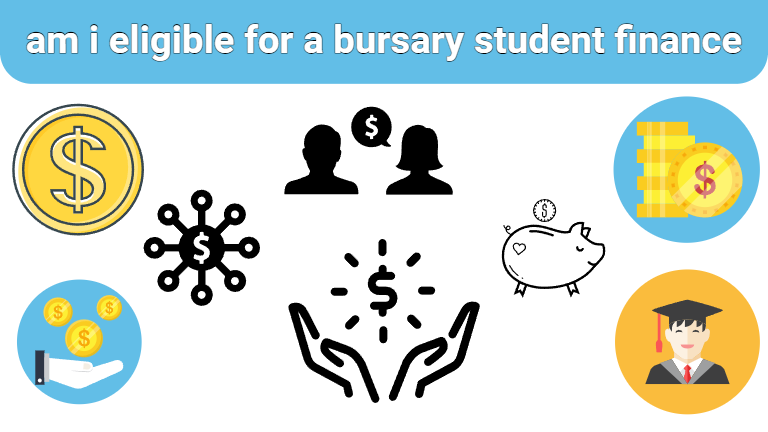Bursaries are a vital form of financial support for students, helping to ease the burden of education costs. Understanding whether you are eligible for a bursary can make a significant difference in managing your finances during your studies. This article will explore the criteria for eligibility, types of bursaries available, and how to apply for them.

What is a Bursary?
A bursary is a non-repayable grant awarded to students based on financial need, specific circumstances, or academic merit. Unlike loans, bursaries do not need to be repaid, making them an attractive form of financial aid.
General Eligibility Criteria for Bursaries
While eligibility criteria can vary depending on the bursary provider, common factors include:
- Financial Need:
- Bursaries are often awarded to students from low-income households. Proof of household income is usually required.
- Academic Performance:
- Some bursaries are merit-based, awarded to students with strong academic records or exceptional talents in specific areas.
- Specific Circumstances:
- Certain bursaries are available for students with particular personal circumstances, such as those with disabilities, care leavers, or first-generation college students.
- Course and Institution:
- Eligibility may depend on the course of study and the institution you are attending. Some bursaries are specific to certain universities or courses.
- Residency Status:
- Most bursaries require applicants to be residents of the country where the bursary is offered. International students may have different eligibility criteria.
Types of Bursaries
- University Bursaries:
- Many universities offer bursaries to support students with tuition fees and living costs. Check with your university’s financial aid office for available options.
- Government Bursaries:
- Some government programs provide bursaries to students based on financial need or specific criteria, such as the Disabled Students’ Allowances (DSA).
- Private and Charitable Organizations:
- Various private organizations and charities offer bursaries for students. These may target specific fields of study, demographics, or personal circumstances.
- Employer-Sponsored Bursaries:
- Some employers provide bursaries to employees or their dependents to support education.
How to Apply for a Bursary
- Research:
- Start by researching the bursaries available to you. Use university resources, online databases, and financial aid offices to find options.
- Check Eligibility:
- Review the eligibility criteria for each bursary to ensure you qualify before applying.
- Prepare Documentation:
- Gather necessary documents such as proof of income, academic transcripts, personal statements, and reference letters.
- Complete the Application:
- Fill out the application form accurately and provide all required information. Some applications may require essays or personal statements.
- Submit Before Deadlines:
- Ensure you submit your application before the deadline. Late applications are typically not considered.
Tips for a Successful Bursary Application
- Tailor Your Application:
- Customize your application to highlight how you meet the specific criteria for each bursary.
- Proofread:
- Check your application for any errors or omissions before submitting.
- Seek Advice:
- If you’re unsure about any part of the application process, seek advice from your university’s financial aid office or a trusted advisor.
- Apply Early:
- Some bursaries are awarded on a first-come, first-served basis, so applying early can increase your chances of success.
Conclusion
Bursaries are an excellent way to support your education financially without the burden of repayment. By understanding the eligibility criteria and following the application process carefully, you can increase your chances of securing a bursary to help fund your studies. For more detailed information, visit your university’s financial aid office or explore online bursary databases.
FAQs
1. What documents are typically required for a bursary application? Common documents include proof of income, academic transcripts, personal statements, and reference letters.
2. Can international students apply for bursaries? Eligibility for international students varies. Check specific criteria on the bursary provider’s website or with your university’s financial aid office.
3. Are bursaries taxable? Generally, bursaries used for tuition and related educational expenses are not taxable. However, it’s advisable to check specific tax regulations in your country.
4. How can I increase my chances of getting a bursary? Applying early, tailoring your application, and ensuring all required documentation is complete and accurate can improve your chances of receiving a bursary.
student financial aid in the united states news
How to Apply for Student Finance for the 2024/25
Best Life Insurance Policies for Families: Securing Your Loved Ones’ Future
Homeowners Insurance for High-Risk Areas: What You Need to Know